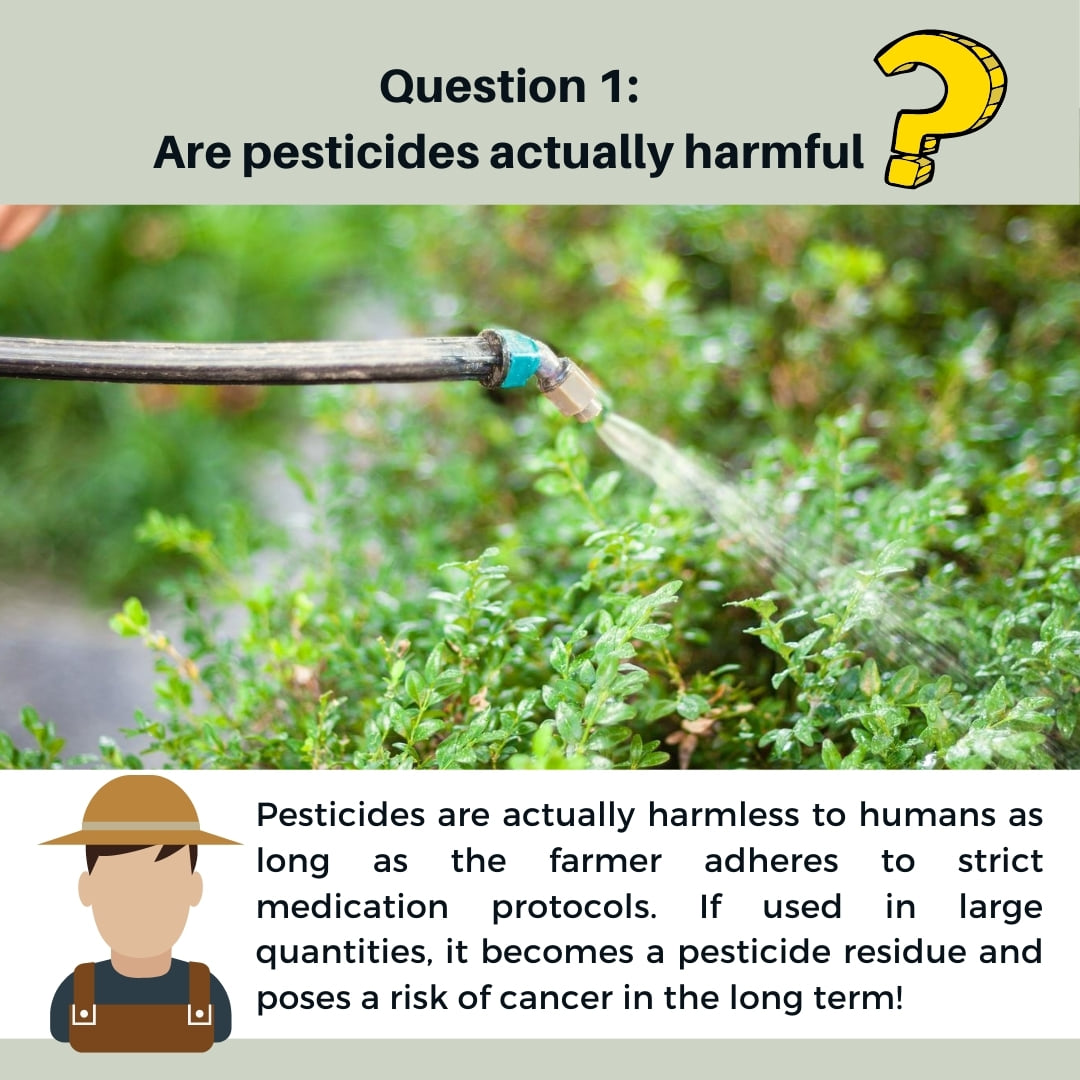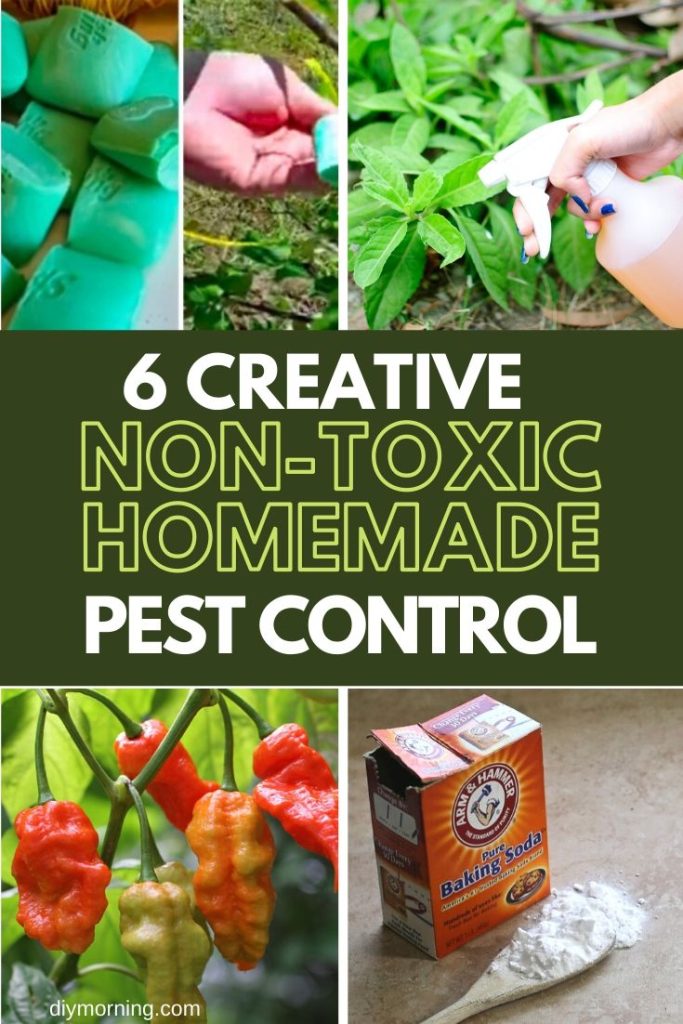How to Choose the Best Organic Pesticides for Home Gardeners

Imagine this: You've spent countless hours nurturing your home garden, only to find it ravaged by pests. It's a heartbreaking sight, but don't reach for those harsh chemicals just yet. There's a better way to protect your green sanctuary—organic pesticides. But with so many options, how do you choose the best organic pesticides for home gardeners? Let's dive in and find out!
Understanding Organic Pesticides
Organic pesticides are derived from natural sources like plants, minerals, and bacteria. They're not only effective but also eco-friendly, ensuring your garden stays green in every sense of the word.
Why Choose Organic Pesticides?

Using organic pesticides is like giving your garden a healthy, balanced diet instead of junk food. They're gentler on the environment, safer for your family and pets, and promote long-term soil health. Plus, they're a key component of organic gardening, helping you maintain a sustainable and non-toxic pest control system.
Types of Organic Pesticides
Navigating the world of organic pesticides can be overwhelming. Let's break down the most common types to help you make an informed decision.
1. Botanical Pesticides
Derived from plants, botanical pesticides are powerful natural insecticides. Neem oil, for instance, is extracted from the neem tree and disrupts the life cycle of many pests. Pyrethrum, derived from chrysanthemum flowers, is another potent option that targets the nervous system of insects.
2. Mineral-Based Pesticides
Mineral-based pesticides use naturally occurring minerals to combat pests. Diatomaceous earth, for example, is a fine powder made from the fossilized remains of tiny aquatic organisms. It works by physically damaging the pests' exoskeletons.
3. Biological Pesticides
Biological pesticides harness the power of living organisms to control pests. Bacillus thuringiensis (Bt) is a popular choice. This bacterium produces toxins that are deadly to certain insects but harmless to humans and most beneficial insects.
Factors to Consider When Choosing Organic Pesticides
Choosing the best organic pesticides for home gardeners involves more than just picking a product off the shelf. Here are some key factors to consider:
1. Target Pest
Different pesticides target different pests. Identify the specific pest you're dealing with before choosing a pesticide. For example, neem oil is great for aphids, while Bt is effective against caterpillars.
2. Plant Type
Some organic pesticides are more suitable for certain plants than others. Always check the label to ensure the pesticide is safe for your specific plants.
3. Application Method
Consider how you'll apply the pesticide. Some come in spray form, while others are powders or granules. Choose a method that's convenient and effective for your garden setup.
4. Environmental Impact
Even organic pesticides can have unintended consequences. Always opt for the most eco-friendly solutions to minimize harm to beneficial insects and the environment.
Top Organic Pesticides for Home Gardeners
Now that you know what to look for, let's explore some of the best organic pesticides for home gardeners.
1. Neem Oil
Neem oil is a versatile and effective natural insecticide. It disrupts the life cycle of many pests, making it a go-to choice for many gardeners. Plus, it's biodegradable and non-toxic to humans and pets.
2. Diatomaceous Earth
Diatomaceous earth is a fine powder that physically damages the exoskeletons of pests, leading to dehydration and death. It's safe for humans and pets but deadly to a wide range of insects.
3. Insecticidal Soap
Insecticidal soap works by breaking down the protective outer layer of soft-bodied insects like aphids and mites. It's a gentle yet effective solution that's safe for most plants.
4. Bacillus Thuringiensis (Bt)
Bt is a bacterium that produces toxins deadly to certain insects, particularly caterpillars. It's highly specific, making it a great choice for targeted pest control.
5. Spinosad
Spinosad is a natural insecticide derived from soil bacteria. It's effective against a wide range of pests, including caterpillars, beetles, and flies. Plus, it's relatively safe for beneficial insects.
Applying Organic Pesticides
Applying organic pesticides correctly is crucial for their effectiveness. Here are some tips to help you get the most out of your pesticides:
1. Follow Instructions
Always follow the manufacturer's instructions for mixing and applying the pesticide. More is not always better—overapplication can harm your plants and the environment.
2. Timing is Key
Apply pesticides at the right time of day and at the right stage of the pest's life cycle. For example, many pesticides are most effective when applied early in the morning or late in the evening.
3. Targeted Application
Apply pesticides directly to the affected areas to minimize harm to beneficial insects. Avoid spraying when bees and other pollinators are active.
Conclusion
Choosing the best organic pesticides for home gardeners is about more than just picking a product. It's about understanding your garden's needs and making informed decisions. By opting for natural insecticides and eco-friendly solutions, you're not just protecting your garden—you're protecting the environment and your family's health.
So, are you ready to take your home pest management to the next level? Embrace organic gardening and watch your garden thrive!
FAQs
Are organic pesticides safe for pets? Yes, most organic pesticides are safe for pets when used as directed. However, always check the label and keep pets away from treated areas until the pesticide has dried.
Can I make my own organic pesticides? Yes, many organic pesticides can be made at home using common ingredients like garlic, hot peppers, and soap. However, store-bought options are often more convenient and effective.
How often should I apply organic pesticides? The frequency of application depends on the specific pesticide and the pest you're targeting. Always follow the manufacturer's instructions and monitor your garden for signs of pests.
Are organic pesticides as effective as chemical pesticides? Organic pesticides can be just as effective as chemical pesticides, especially when used correctly. They may take longer to work, but they're gentler on the environment and safer for your family.
Where can I buy organic pesticides? Organic pesticides are widely available at garden centers, home improvement stores, and online retailers. Always choose products from reputable brands to ensure quality and effectiveness.

For more information on organic gardening and natural pest control, visit the National Pesticide Information Center and the Rodale Institute.
0 Response to "How to Choose the Best Organic Pesticides for Home Gardeners"
Post a Comment